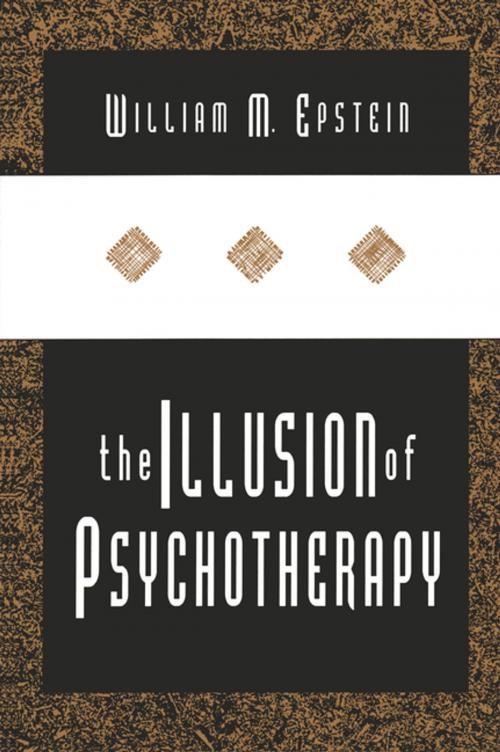The Illusion of Psychotherapy
Nonfiction, Health & Well Being, Medical, Specialties, Psychiatry, Psychology| Author: | William Epstein | ISBN: | 9781351293181 |
| Publisher: | Taylor and Francis | Publication: | April 17, 2018 |
| Imprint: | Routledge | Language: | English |
| Author: | William Epstein |
| ISBN: | 9781351293181 |
| Publisher: | Taylor and Francis |
| Publication: | April 17, 2018 |
| Imprint: | Routledge |
| Language: | English |
In The Illusion of Psychotherapy William Epstein asserts that psychotherapy is probably ineffective and possibly harmful. He maintains that there is no credible clinical evidence that psychotherapy is effective in handling personal or social problems, or that it is more effective than other modes of treatment. The theories that underpin clinical practice remain speculative and their influence over social policy are more ideological than scientific. A skeptical public and its government would be better served, Epstein says, by credible evidence of outcomes. His analysis focuses on whether psychotherapy is effective against a variety of unwanted behaviors, such as drug addiction and depression.
The nation's social problems are due to the inadequacies of its core social institutions: families, communities, education, and jobs. Social problems emerge because many people are brought up in deficient families, live in dangerous communities, lack education and jobs, and have few or no routes out of poverty. Poor people are exposed to unrelenting risks to their physical and mental health. It is possible to remedy most deficiencies through human services that compensate for these failed social institutions.
This position is inevitably unpopular in psychotherapeutic circles and in light of current political preferences since it requires massive new resources and extensive redistribution of existing resources. The extent of society's problems reflects the degree to which deficits in basic social institutions have been tolerated. Basic services have been lacking while psychotherapy diverts our impulse to address poverty into ineffective strategies. In a challenging conclusion, Epstein urges society to solve its problems by confronting the reality implied by the failure of psy-chotherapy's minhnal interventions: to acknowledge that more is necessary to resolve social need. This leads to general theoretical concerns about theory as such. The Illusion of Psychotherapy will be compelling reading for psychologists, psychotherapists, social scientists, and policymakers.
In The Illusion of Psychotherapy William Epstein asserts that psychotherapy is probably ineffective and possibly harmful. He maintains that there is no credible clinical evidence that psychotherapy is effective in handling personal or social problems, or that it is more effective than other modes of treatment. The theories that underpin clinical practice remain speculative and their influence over social policy are more ideological than scientific. A skeptical public and its government would be better served, Epstein says, by credible evidence of outcomes. His analysis focuses on whether psychotherapy is effective against a variety of unwanted behaviors, such as drug addiction and depression.
The nation's social problems are due to the inadequacies of its core social institutions: families, communities, education, and jobs. Social problems emerge because many people are brought up in deficient families, live in dangerous communities, lack education and jobs, and have few or no routes out of poverty. Poor people are exposed to unrelenting risks to their physical and mental health. It is possible to remedy most deficiencies through human services that compensate for these failed social institutions.
This position is inevitably unpopular in psychotherapeutic circles and in light of current political preferences since it requires massive new resources and extensive redistribution of existing resources. The extent of society's problems reflects the degree to which deficits in basic social institutions have been tolerated. Basic services have been lacking while psychotherapy diverts our impulse to address poverty into ineffective strategies. In a challenging conclusion, Epstein urges society to solve its problems by confronting the reality implied by the failure of psy-chotherapy's minhnal interventions: to acknowledge that more is necessary to resolve social need. This leads to general theoretical concerns about theory as such. The Illusion of Psychotherapy will be compelling reading for psychologists, psychotherapists, social scientists, and policymakers.















